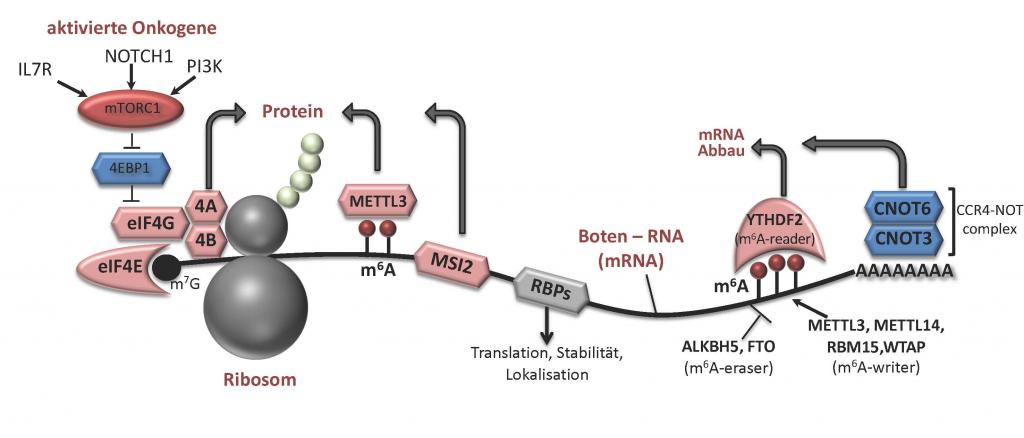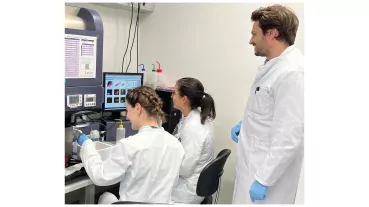Cancer
|
Deciphering the oncogenic epitranscriptome in acute lymphoblastic T-cell leukemia using functional genetics
Funding line:
First and Second Applications

Role of RNA-binding proteins (RBP) in the translation and stability of mRNAs.
(© Adrian Schwarzer, MHH)
Acute T-cell leukemia (T-ALL) is an aggressive form of blood cancer with a poor prognosis in adults. Our research group is interested in the cellular signaling pathways that fuel the uncontrolled growth of the leukemic cells. Our work indicates that mRNA binding proteins and the "epitranscriptome", i.e. chemical modifications of RNA, play an important role in this context. For example, RNA binding proteins regulate the stability of mRNAs that encode oncogenes such as the MYC gene. In our project, we use functional genetics such as the genome editing system CRISPR-Cas9 to model the disease in mice and to probe the role of RNA binding proteins in acute T cell leukemias.







